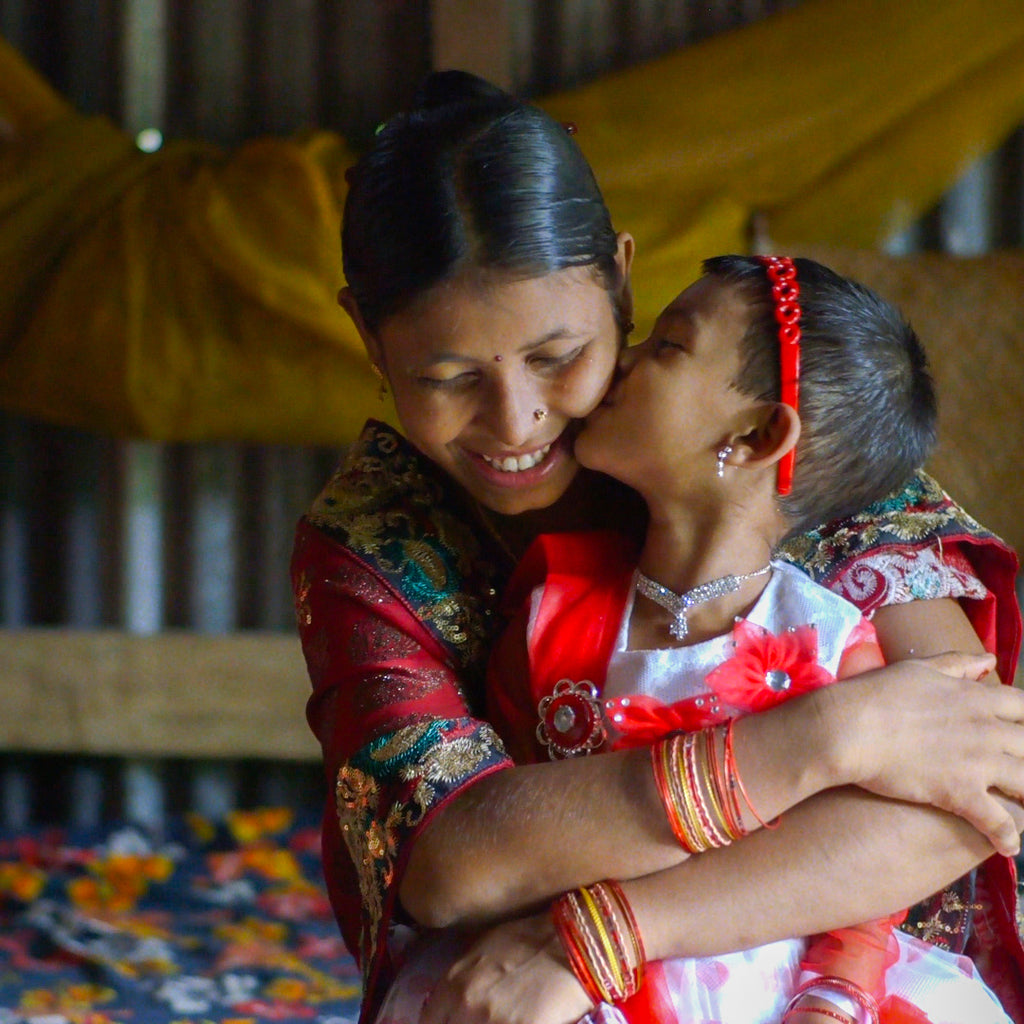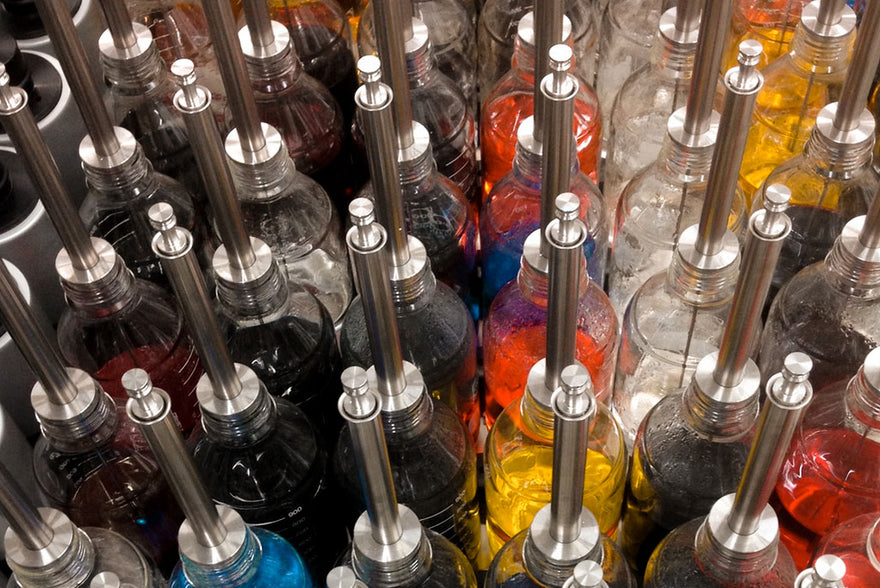Who actually makes our clothes? We admit: This simple question is tough and there is often no simple answer. Many labels don't know how or in which factories their clothing is made, let alone where exactly the fabrics and raw materials come from. The textile value chain is very complex and usually not transparent in conventional production.
But without transparency there is no fair and sustainable production. It is necessary so that we know who is involved. And for us, a transparent value chain is the foundation for a fair and sustainable label.

That's why we at OGNX rely on transparency from the organic cotton farmer to you on your yoga mat. We know our manufacturers personally, visit them several times a year and work closely with them to improve our products and processes.
The collapse of Rana Plaza
However, how far reality is from our imagination was shown in the most terrible way in the largest catastrophe in the history of the textile industry: the collapse of the Rana Plaza factory in Dhaka, Bangladesh on April 24, 2013. More than 1,100 workers died lives, more than twice as many were injured. Many of the seamstresses lost a hand, an arm or a leg in the accident and will never be able to do paid work again. All of this happened even though cracks were discovered in the facade of the eight-story factory building before the accident. The police then issued a ban on working inside the building, which was ignored by the factory operators. Even during the construction of the textile factory, all safety and fire protection requirements were violated. Since the building's statics were not designed to withstand the loads of factory production, the weight of illegally constructed floors and industrial machinery caused serious damage to the masonry. The collapse of Rana Plaza was only a matter of time and could still have been prevented.
For weeks after the accident, many manufacturers did not know whether their clothing was produced in this factory. However, it turned out that it was mainly western companies such as H&M, adidas, Tchibo and KiK that had their clothing manufactured there. Unfortunately, not much has happened in conventional production since the accident. Many who work along the textile value chain still suffer from the conditions.
It's time for a revolution

Shima Akhter and her daughter Nadia from the documentary "The True Cost".
As bad as the events at Rana Plaza are, the event alerted the world to the inhumane working conditions in the textile industry. In fact, the ethical fashion industry has experienced a bit of a boost since then.
Many great projects have also emerged from this: Andrew Morgan then started work on his film “ The True Cost ” - highly recommended (available on Netflix ). In his film, Andrew Morgan documents the grievances in the textile industry, accompanies various stakeholders and the seamstress Shima Akhter and impressively shows how much hope there is in the whole mess.
Carry Somers, a pioneer in fair fashion, founded the international Fashion Revolution Day. Fashion Revolution Day has now become an entire Fashion Revolution Week . She calls us to critically question who makes our clothes. “The global fashion industry is opaque, exploitative, polluting and in desperate need of revolutionary change. Fashion Revolution aims to ignite a revolution to radically change the way our clothes are sourced, produced and bought. We believe transparency is the first step to transform the industry. And it starts with a simple question: “Who made my clothes?” explains Carry Somers.
Fashion Revolution Week – Who made my clothes?
The dark side of fashion creates a conflict of social values. They ask us what is more important to us: our own supposed satisfaction through consumption and possession or values such as human dignity, compassion and justice?
These values are important to OGNX and of course we also love fashion! We therefore have our yoga and sportswear collections manufactured not only fairly, but also ecologically. Two things that clearly belong together for us.
In addition to certifications, we ensure that our criteria are adhered to, for example through contractual regulations such as that our manufacturers are not allowed to forward our orders. Precisely because it is so often forgotten, it is important to us who produces our products, because behind every product there are people and a story: from our designer who creates the clothing to the farmer who grows the organic cotton from the factory workers who weave the fabrics, finish them and sew the products to you and your yoga practice! We are all one - a sentence that we hear so often in the yoga world is particularly relevant here.

Fashion Revolution Week (April 22 - 28, 2019) would like to bring these connections to the fore again. The campaign is intended to remind us that we are not just purchasing a piece of clothing, but a whole chain of values and relationships. We would therefore like to invite you to ask labels directly about the origin of your clothing using the question and the hashtag #whomademyclothes .

Here you can easily print out a revolution poster and ask the crucial question in a social media post! Post your picture with your garment's label and the hashtag #whomademyclothes on Twitter, Facebook and Instagram and link to the corresponding label below.
Be part of it!
